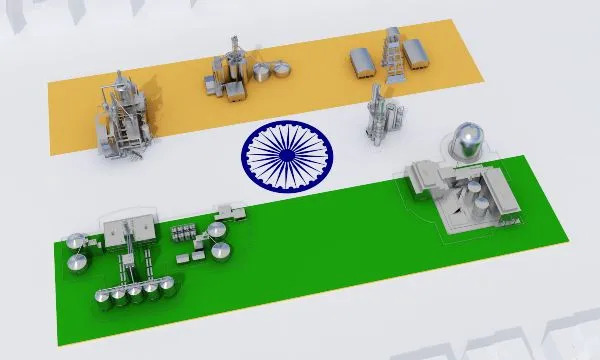With the globalization of World economy, the technological growth of a country takes the spotlight. The use of new and better technologies paves the way for production of cheaper goods as well as capital accumulation. This helps in enhanced international competitiveness of individual countries as well as contribute to the cultural and political development of societies. The nations that can efficiently disseminate technology and information to all areas of the society can create new areas of employment in their countries.
In the last eight years, the Modi government has supported the advancement of technology for good governance and to uplift the image of our county at the global stage. Digital India, launched in 2015 has helped to empower people from all domains of the society and bridged the digital divide between rural and urban India. UPI introduced in 2016, has 338 banks live on the platform in 2022. As of May 2022, 1.3 lakh UPI transactions were conducted every minute. Nowhere in the world there is any such facility available nor such number of transactions have ever happened on one single platform.
The IT industry being the backbone for our economy has changed the perception of the whole world about India’s storehouse of knowledge and skills. The liberalisation policies such as reducing trade barriers and eliminating import duties on technology products by the Government as well as initiatives like setting up Software Technology Parks (STP), Export Oriented Units (EOU), Special Economic Zones (SEZ) have helped this industry in attaining a leading position globally. AI and Machine Learning are being enthusiastically adopted in government services.
Union Minister for Petroleum and Natural Gas Hardeep Singh Puri has said that India is on the path to becoming a 10 trillion-dollar economy in 2030 and the third largest economy in the world by 2047. The adoption of quantum technologies across industries can potentially add $280-$310 billion of value to the Indian economy by 2030.
About 92 per cent of the 100 quantum projects started in India are funded by the government. India plans to develop a quantum computer with roughly 50 qubits by 2026, joining a rising number of countries such as Australia and Israel in promoting the technology’s widespread adoption. QuEST by the Department of Science and Technology and National Mission for Quantum Technologies and Applications (NM-QTA) are working towards making the quantum dream a reality.
Since the pandemic, cloud computing has emerged as a mission-critical technology for enterprises, government, and the consumers. It is not just the underpinning technology for digital transformation, but it is also enabling innovation for and collaboration among ecosystem players. New-age technologies will be offering India the possibility to carve itself a unique identity as a global hub for cloud solutions.
India is also emerging as a hotspot for electric vehicle technologies. It has set the goal of achieving carbon neutrality by the year 2070. India’s EV market is estimated to be valued at $2 Bn by 2023 and $7.09 Bn by 2025. The recently concluded Auto EV India 2022, under the aegis of ELE Times was aimed to promote creativity and further research in e-mobility. The show provided an opportunity for manufacturers to connect and demonstrate their products to a highly engaged target audience. The second edition of Auto EV India is slated to take place from 2-4th November 2023.
Technology being the primary catalyst for the economic prosperity of a country, its inclusion in India’s policy plan is imperative to expand, strengthen and drive a positive impact. To an estimate technology is an important pillar to help India become the 2nd largest economy in the world by the year 2050.








